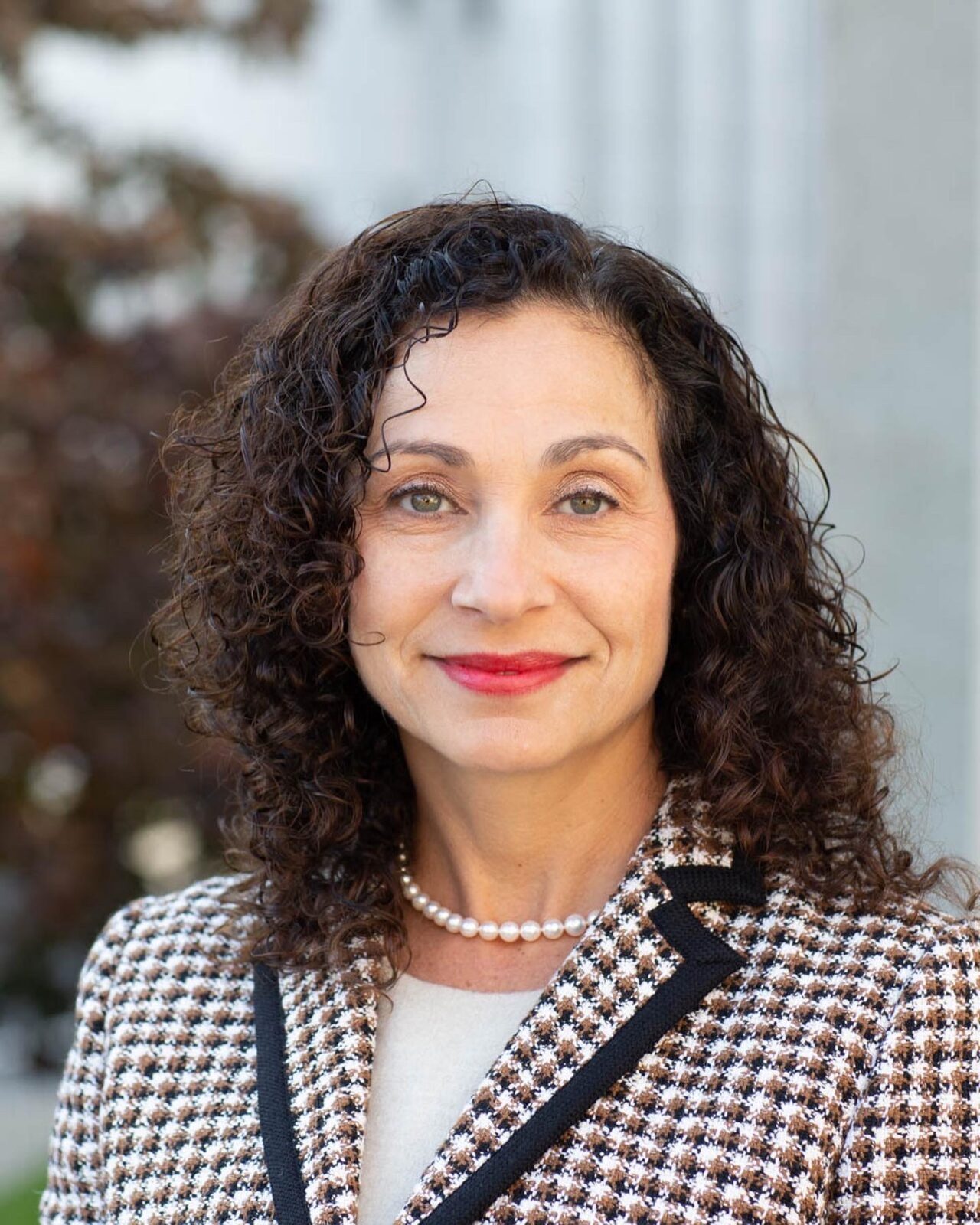Ethics Opinion 1238
3.17.2022
Topic: Conflict of interest; full-time attorney in county attorney’s office with part-time outside practice
Digest: A full-time lawyer in a county attorney’s office who represents the county in civil litigation in state and federal courts may represent private clients in Family Court, or accept appointments as assigned counsel to represent indigent persons in Family Court, provided neither the county nor any of its agencies is a party to the proceeding and either no conflict of interest exists under Rule 1.7(a) or, if there is a waivable conflict, both the county and the Family Court client give informed consent to the conflict, confirmed in writing, pursuant to Rule 1.7(b)(4).
Rules: 1.0(h), 1.7 (a)-(b), 1.10(a), 1.11(f)
FACTS:
- The inquirer is a permanent, full-time attorney in the County Attorney’s Office, assigned to defend the county in civil litigation in state and federal Neither the inquirer nor any other lawyer in the County Attorney’s Office appears in Family Court as a member of the County Attorney’s Office, but the county is represented in Family Court by counsel in the Family Law Division of the county’s Department of Social Services.
- Assignments to represent indigent clients in criminal cases and Family Court matters are made pursuant to the 18-B program, which is governed by a contract between the county and the county bar association. The inquirer did not draft or negotiate that contract, and inquirer plays no role in approving assigned counsel appointments or claims for compensation.
- With the permission of the county attorney, the inquirer has embarked upon the private practice of law while retaining his position in the County Attorney’s In his private practice, the inquirer declines representation in any Family Court matter in which the county is a party.
QUESTION:
- May a full-time assistant county attorney represent clients in Family Court matters in which the county is not a party, including assigned counsel matters pursuant to the 18-B program?
OPINION:
- This committee has established and repeatedly affirmed a per se rule that prohibits a part- time prosecutor from representing a defendant in a criminal proceeding anywhere in New York See e.g., N.Y. State 788 (2005); N.Y. State 657 (1993); N.Y. State 184 (1971); N.Y. State 171 (1970).
- In N.Y. State 800 (2006), however, when faced with a part-time prosecutor who proposed to represent indigent persons in Family Court proceedings in an adjacent county, we declined to extend the per se prohibition. Instead, we identified three types of Family Court proceedings in which the part-time prosecutor would be barred from representation: (a) matters in which the prosecutor was then working or had previously worked with the law enforcement officials involved, (b) juvenile delinquency proceedings and (c) cases involving Persons in Need of Supervision (“PINS”). Id. ¶ 5.
- Outside these strictures, we opined that whether the part-time prosecutor could accept a Family Court assignment depended “on all the relevant facts and circumstances.” ¶ 4. We said:
The attorney must avoid all conflicts of interest, ensuring that neither the attorney’s own interests, nor the attorney’s simultaneous work as a prosecutor preclude the attorney from exercising independent judgment on behalf of his or her clients. In many cases, a conflict might not be apparent at the outset of the case. For this reason, the attorney must be careful to avoid cases where a conflict is likely to occur.
N.Y. State 800 ¶ 4 (footnotes omitted). - In N.Y. State 1074 (2015) we applied the same facts-and-circumstances test to a part-time Department of Social Services attorney who wanted to accept assignments to represent indigent persons in criminal and Family Court matters, noting that the attorney had made a “well advised” decision not to accept child abuse and neglect cases from the assigned counsel program, two additional types of Family Court proceedings which we deemed “off limits” under the rationale of N.Y. State 800. Id. ¶ 6. In importing the part-time prosecutor facts-and-circumstances test to the Department of Social Services attorney we concluded: We cannot say that the Rules invariably forbid a lawyer to accept the representation of an indigent defendant in a traffic violation merely by virtue of the lawyer’s role as a part-time lawyer handling Medicaid, paternity, or child support issues for the Department of Social Services. Likewise, we cannot say that the Rules invariably forbid a lawyer to accept a representation in a Family Court proceeding between, say, two private individuals in which the Department of Social Services has no involvement.
N.Y. State 1074 ¶5. - Here, a full-time assistant county attorney wants to represent clients in Family Court proceedings to which the county is not a party, including assigned counsel 18-B matters. Neither he nor any other attorney in the County Attorney’s Office represents the county in juvenile delinquency, PINS, or child abuse or neglect cases. In our view, provided that law enforcement officers with whom the attorney is working or with whom he has previously worked as assistant county are not involved in the Family Court proceeding, there is no basis in the Rules or in our prior opinions that would give rise to a per se prohibition. As in N.Y. State 800 and N.Y. State 1074, the ethical propriety of each intended Family Court representation would be governed by the same facts-and-circumstances test.
- Our conclusion is consistent with our most recent opinion in this area, Y. State 1219 ¶ 7 (2021), where we opined that the inquirer, a part-time assistant county attorney, was not subject to a “per se bar” on representing convicted defendants in state parole violation hearings where “(1) the inquirer’s practice as a part-time county attorney is entirely civil, as is all of the work of the County Attorney’s office; (2) the inquirer would not appear before any County judges or officials in the contemplated parole work; and (3) a violation or construction of County law is not typically at issue in parole violation hearings or appeals.” Rather, we noted “[t]here may be . . . particular cases in which the inquirer would have a conflict. For example, if the conduct of County employees is involved in the parole violation, or the parole violation defendant is a party to a civil case brought by the County Attorney’s Office, the inquirer might have a conflict.” Id. ¶ 8 (citing N.Y. State 1074 ¶ 8 (2015) and N.Y. State 800 ¶¶ 5-6 (2006)).
- In applying the facts-and-circumstances test here, two important factors regarding the inquirer’s practice are the full-time character of the inquirer’s public practice, and the particular sensitivity of family law Especially in this context, the inquirer’s Family Court representation could give rise to situations where a reasonable lawyer would conclude there is a significant risk that the attorney’s professional judgment would be adversely affected by his personal interests, including his status in the County Attorney’s Office, under Rule 1.7(a)(2) of the New York Rules of Professional Conduct (the “Rules”). Specifically, Rule 1.7 (a)(2) provides:
- Except as provided in paragraph (b), a lawyer shall not represent a client if a reasonable lawyer would conclude that either:
- (1) ***; or
- (2) there is a significant risk that the lawyer’s professional judgment on behalf of a client will be adversely affected by the lawyer’s own financial, business, property, or other personal interests.
- For example, county policies that concern child protective services, adoption, custody and visitation, support, family offense, guardianship, delinquency, paternity, foster care, or other county policies and procedures affecting children and families may be implicated in a Family Court See N.Y. State 800. An assistant county attorney representing a private or an assigned counsel client in such a case may feel constrained in advancing the most advantageous or persuasive legal arguments, or in pursuing the most promising factual inquiries, if those actions might embarrass county officials or conflict with county policy and risk antagonizing the County Attorney.
- If the inquirer determines that a conflict of interest exists in a particular matter under Rule 7(a)(2), the lawyer’s representation may nonetheless be permitted under Rule 1.7(b) which provides:
- Notwithstanding the existence of a concurrent conflict of interest under paragraph (a), a lawyer may represent a client if:
- the lawyer reasonably believes that the lawyer will be able to provide competent and diligent representation to each affected client;
- the representation is not prohibited by law;
- the representation does not involve the assertion of a claim by one client against another client represented by the lawyer in the same litigation or other proceeding before a tribunal; and
- each affected client gives informed consent, confirmed in writing
- We have previously opined that government may waive a conflict pursuant to Rule 7(b), provided the conflict is waivable under the Rules and “(i) the lawyer was reasonably certain both that the entity was legally authorized to waive the conflict of interest and that all legal prerequisites to the consent had been satisfied and (ii) the lawyer reasonably believed that the process by which the consent was granted was sufficient to preclude any reasonable perception that the consent was provided in a manner inconsistent with the public trust.” N.Y. State 1130 ¶15 (2017).
- Even if there is no conflict or if there is a waivable conflict and informed consent to the representation is properly sought and secured from both the county and the Family Court client, three caveats are in order.
- First, this committee’s jurisdiction is limited to the Rules and we do not opine on questions of law. Therefore, the inquirer should be mindful that, independent of any ethical concerns, his proposed conduct may violate a statute, local law, or municipal ethics code concerning outside private employment by an assistant county attorney.
- Second, Rule 1.11(f)(2) cautions that a lawyer who holds public office shall not “use the public position to influence, or attempt to influence, a tribunal to act in favor of the lawyer or of a ” See also N.Y. State 1065 ¶ 11 (2015) (“even assuming there is no conflict under Rule 1.7(a), the inquirer is prohibited from using any influence he may have as a public official to influence or attempt to influence, any tribunal to act in favor of the [inquirer’s] proposed client.”).
- Third, our conclusion might be different if the attorneys in the Family Law Division of the Department of Social Services were considered to be part of the same “law firm” as the County Attorney’s Office. See Rule 1.0(h) (definition of “firm” and “law firm” includes a “government law office.” That is because our analysis relies heavily on the fact that the County Attorney’s Office, and the inquirer, are engaged exclusively in civil practice and the attorneys in the Family Law Division represent the Department of Social Services in all Family Court matters.
- We have opined that the defense function in juvenile delinquency proceedings “although not categorized as ‘criminal’ is indistinguishable from defense in an adult criminal proceeding” and that “PINS proceedings are functionally indistinguishable from juvenile delinquency proceedings” (N.Y. State 800 ¶¶ 7, 8). Citing N.Y. State 657 (1993) and N.Y. State 788 (2009), we have also opined: The role of the Social Services attorney when prosecuting child abuse and neglect proceedings is comparable to the role of the D.A.’s office in criminal prosecutions. In both, the attorney represents the interests of the state in matters with grave consequences (incarceration in one, custody and parentage in the other). Like the D.A. in criminal prosecutions, the Social Services prosecutor has a special role that is “inherently incompatible” with the role of defense counsel.
N.Y. State 859 ¶ 13 (2011). - Accordingly, following the broadening of the per se rule that prohibits a part-time prosecutor from representing a defendant in a criminal proceeding anywhere in New York State to include Department of Social Service and assistant county attorneys who prosecute these quasi- criminal matters in Family Court, if the attorneys in the Family Law Division here prosecute juvenile delinquency, PINS or child abuse and neglect proceedings, which appears likely, its lawyers would not be permitted to accept private clients or 18-B counsel assignments to defend such matters in the Family Court. That per se prohibition would apply to the inquirer if the two offices are, in effect, the same law firm for imputation purposes under Rules 1.10(a) which provides: “While lawyers are associated in a firm, none of them shall knowingly represent a client when any one of them practicing alone would be prohibited from doing so by Rule 1.7 . . . except as otherwise provided therein.”
- Whether the lawyers in the County Attorney’s Office and the Family Law Division of the Department of Social Services are in the same “firm” as defined by Rule 1.0(h) is a “fact-intensive inquiry” that focuses, among other things, on (1) whether the County Attorney’s Office, on the one hand, and the Family Law Division or the Department of Social Services, on the other hand, present themselves to the public in a way that suggests they are a single firm; (2) whether the lawyers in each office have mutual access to the same information concerning the clients that they each serve; and (3) whether the lawyers in each office are independent from the direction and control of supervising attorneys in the other office. See N.Y. State 1219 ¶ 9 (2021); N.Y. State 1210 ¶¶ 6-8 (2020).
- A full-time lawyer in a county attorney’s office who represents the county in civil litigation in state and federal courts may represent private clients in Family Court, or accept appointments as assigned counsel to represent indigent persons in Family Court, provided neither the county nor any of its agencies is a party to the proceeding and either no conflict of interest exists under Rule 7(a) or, if there is a waivable conflict, both the county and the Family Court client give informed consent to the conflict, confirmed in writing, pursuant to Rule 1.7(b)(4).
CONCLUSION:
(32-21)






